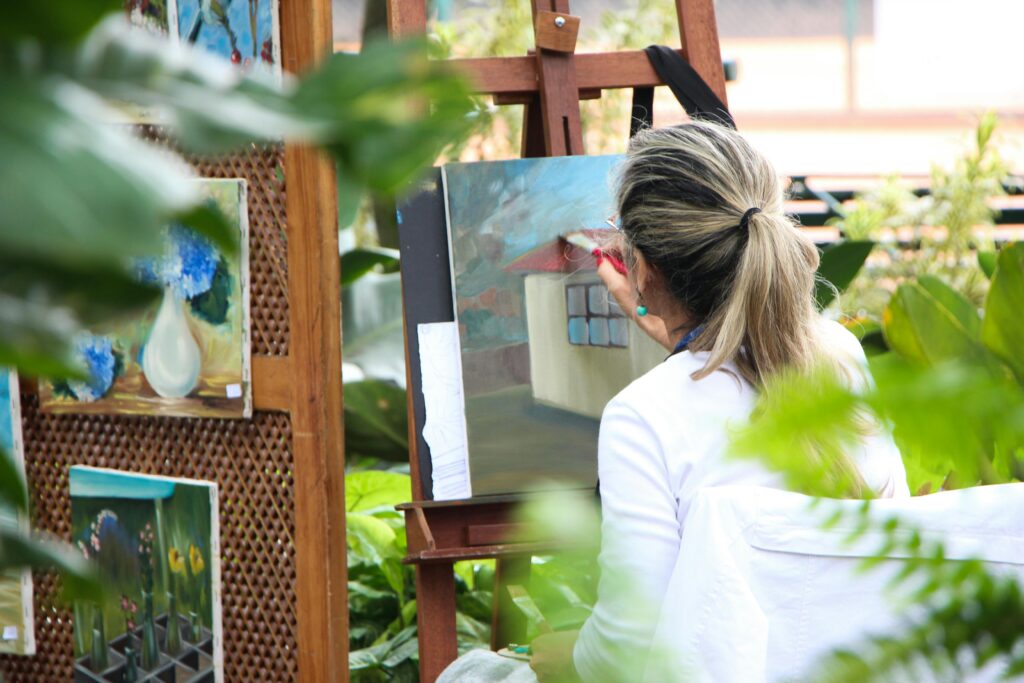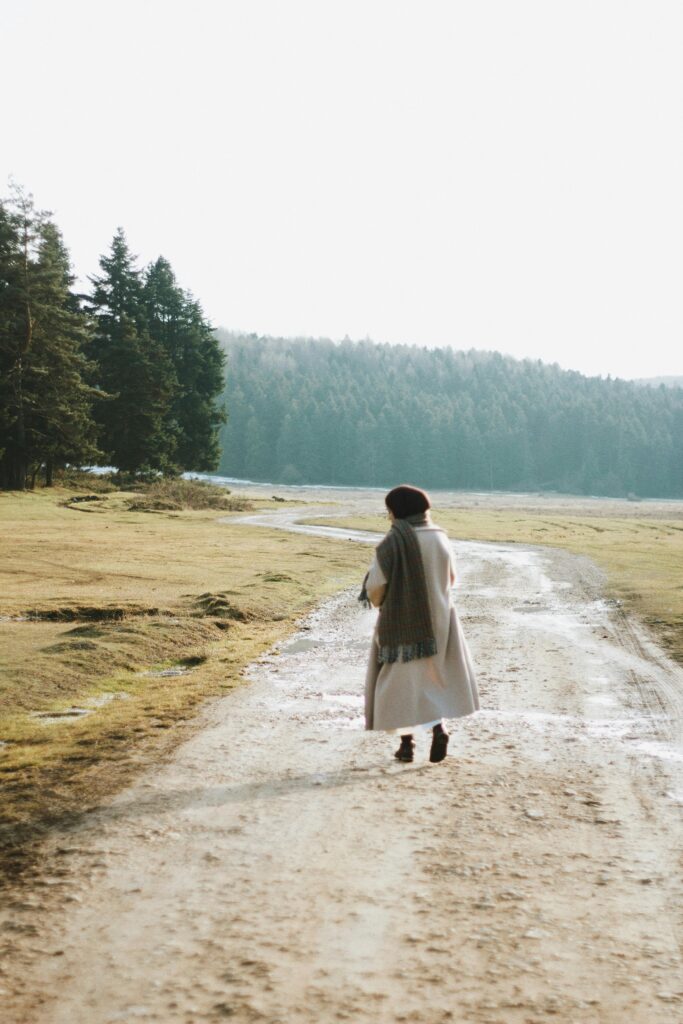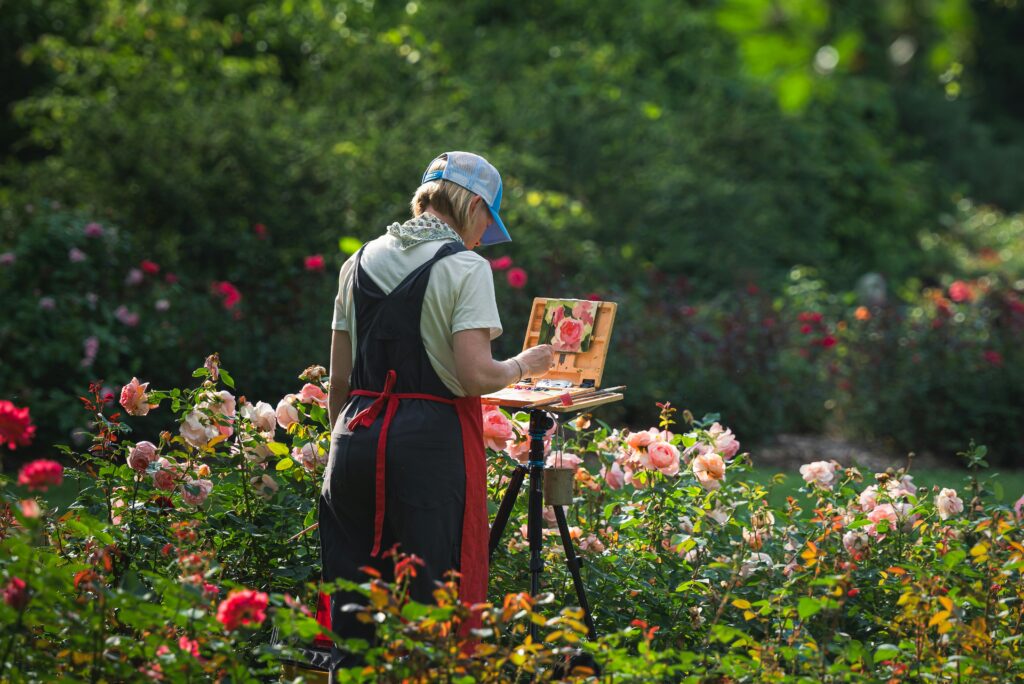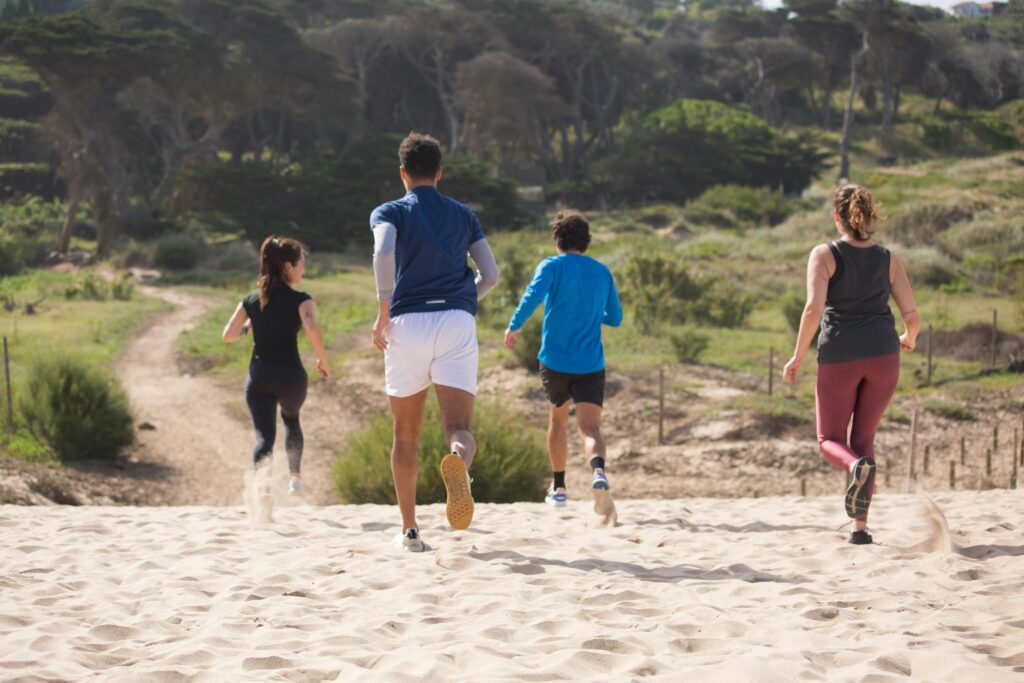How and why art, nature and athletic activity support and express through good therapy
November 8, 2024
When it comes to personal growth and wellbeing, nature, art, and athletic activity stand as powerful sentinels that strongly support healthy development. At 2nd Opinion Psychotherapy, I encourage my clients to include these into their daily lives, and my own pursuits actively support my role as therapist.

Participating regularly in anything active, natural or creative offers a nourishment through fulfilment, awe and inspiration that gives us strength of character and discernment when we need it most. This is the intrinsic difference between classroom learning and Art/Nature/Athletics learning. The lessons are lived. When a lesson is lived, it is embodied. It becomes a part of you. People that are called ‘experts’ are those people that have embodied the lessons many times and not because they have sat many years in a classroom. Someone that has sat many years in a classroom, is an expert at that, and that’s all.
For example, through sailing I have learnt many of life’s important lessons – when you need to reach a destination but the wind is blowing directly into your face from that destination (a challenge to a goal) you must navigate closely (to the wind) and carefully (trim the sails) and make a seemingly impossible journey possible (tacking) by working with the challenge and not against it. Working with a challenge and not against a challenge, taught through sailing, shows me first hand the wisdom and common sense of working collaboratively.
It also teaches respect.
In fact, the lessons delivered through Artistic, Natural and Athletic participation are countless and will be countlessly different for each of us!
The short-cut to wellbeing
People that regularly engage with nature, the arts, or sports tend to enjoy better overall health than those who don’t. This observation isn’t merely coincidental; it reflects the deep-rooted connection between these activities and our physical, mental, and emotional well-being and our inter-relatedness.
This is backed by a study conducted by a team of researchers from the University of California in 2018, which found that the awe people feel during extraordinary or daily nature experiences is linked to enhanced well-being and life satisfaction, as well as reductions in stress-related symptoms(1).
You can apply these ideas to almost any artistic expression, natural activity or sport and you will find that the embodied lessons are generously endless.
Nature

When we go out walking in a park, by a river or into the ocean, we are brought squarely into an opportunity to connect with it as a living, breathing companion. The bigger the nature the better the embodied learning. You have to know where you are, what you are doing, and have the right equipment to meet the challenge. When you have spent time in Big Nature, you return replenished and wiser for it. When something happens, you must address it immediately. Life is being lived! More often than not, you will have experienced awe, and wonder which when embodied can teach about potential.
By not accessing natural environments on a regular basis, we deprive ourselves of so much, but importantly the opportunity to embody the beauty, wisdom and true power offered freely and abundantly. Nature embodies truth for us, unerringly, and there is a grounding in common sense that returns like a long lost friend.
Reflect on these natural activities for their embodied lessons –
- Bushwalking / camping
- Swimming in the ocean
- Gardening
- Rock climbing
Art

Creating with raw materials inserts play and joy into life. When we use our bodies to create, we must immerse, focus, participate, and persevere. Creativity teaches flexibility and is literally within everything; it implies and teaches an attitude to life that is essentially expansive, expressive, joyful and divinely beautiful. It is the rebel, the larrikin of natural life, needing nobody’s permission to do its thing, but having a firm place in the juice and substance of good health. Art is irrepressible, a natural force within us all, that when embraced can raise our spirits immeasurably. Importantly, true creative expression has no limits, and the lessons learnt through participating, are of a high spiritual quality that translate to a resilient life, making you adaptable, open-minded, good-humoured, and critically thinking.
Art brings embodied joy and teaches kindness and patience.
Reflect on each of these artistic connections for their embodied lessons –
- Pottery
- Painting
- Writing
- Singing
- Dancing (freeform)
- Cooking / Baking
Athletics

When we hold ourselves accountable by participating in a team sport or a solo athletic challenge, we give ourselves the opportunity to grow and develop inner as well as outer strength, balance and coordination. From strength we develop embodied self-esteem, leadership qualities and self-discipline. Whether it’s team or solo, we must inter-connect to the sport itself and the team towards a singular outcome. That goal may never need to be reached but importantly the process towards it is saturated with spiritual lessons in life. Balance and coordination teach is collaboration in teams, tolerance and patience and understanding moderation.
As a veteran scuba diver, I fully understand the need to prepare, but not micro-manage; knowing how to balance between preparedness and enjoying the dive is a skill, as is the ability to be neutrally buoyant at any depth.
Reflect on these athletic activities for their embodied lessons –
- Yoga
- Running
- Soccer
- Martial art
Integrating wellbeing into daily life
An activity included regularly into your life will nourish you, and become a simple change of scenery that you come to look forward to! The act of moving from your tasks to your art/nature/sport activity is in itself a healthy rotation that supports wellbeing. So, even if your engagement is short in time, it’s value is immeasurable.
All three have elements of each other within them – dance is athletic and artistic and natural (ask any child), martial art is supremely creative, athletic and embodies natural principles, singing requires creativity, collaboration in groups, harmony and physical stamina and discipline, to name a few.
The Power of Daily Practice: Choosing to care deeply for yourself and to continue to learn lessons about life through any of these activities, supports you but also supports your therapeutic process in psychotherapy through –
- Reduced stress and anxiety
- Improved mood and emotional regulation
- Enhanced cognitive function and creativity
- Better physical health and immune function
One of the many institutions that study life lived through joy, and with whom I have completed several trainings now, is the HeartMath(R) Institute.
Practical applications in therapy
At 2nd Opinion Psychotherapy, I bring these influences to therapy –
Nature-Based Influences : story, natural processes found in human development, education, body-based therapy and sensory awareness, to name a few. Nature is woven right through psychotherapy because human interconnectedness is natural.
Expressive Arts: By embodying an attitude that is open, curious, inquisitive and playful, art is warmly invited into each session. By encouraging clients to speak freely without censoring themselves, to emote fully when it is emerging, to expand their thinking into pure and unlimited potential, and to laugh, creativity is deeply innate in all Good Therapy.
Movement and Somatic Experiences: While formal therapy is indeed a seated interaction, those that regularly include athletics into their lives show a higher degree of engagement in therapy. This is directly related to the strengths and self-discipline that are developed. It is often at the initial stages of therapy that beginning something where movement is involved will support us on our way.
Overcoming barriers to engagement
Often, we daydream about far-off adventures or promise ourselves we’ll “one day” learn a new skill. However, the key to reaping the benefits of nature, art, and athletic activity lies in starting small and staying consistent.
Micro-Doses of Wellbeing: Even brief daily encounters with nature, moments of creativity, or short bursts of physical activity can have a cumulative positive effect on your mental health.
Mindful Engagement: The quality of your interaction matters more than the quantity. Fully immersing yourself in a 5-minute nature observation can be more beneficial than an hour of distracted outdoor time.
Love Days: It is not a ‘treat’ but actually common sense to give the time to yourself to develop a richer life through any of these practices. When my children were small, and attending primary school (a beautiful Steiner school in Brisbane) I would sometimes notice that they were weary of the daily grind. On those occasions, we would make the day a Love Day, and instead head to the local creek for the day with a big picnic, to play and relax by the water. We were all restored fully by making this wise choice.
Love Days are a Very Good Idea and not only for children but for us all! I have embodied the wisdom gained from them, to be able to share it here.
Learn more about my therapeutic approach here, or get in touch with me to arrange a complimentary discovery call.
“If you initiate the first contact with life through art, nature and athletics, and you do it regularly and with depth, you build natural resilience to life’s challenges, while having fun! ” – Anne Ligthart
1) Anderson, C. L., Monroy, M., & Keltner, D. (2018). Awe in nature heals: Evidence from military veterans, at-risk youth, and college students. Emotion, 18(8), 1195–1202. https://doi.org/10.1037/emo0000442
Leave a Reply Cancel reply
2025 2ND OPINION PSYCHOTHERAPY
PRIVACY POLICY
WEBSITE BY THE STORY SHED
PHOTO CREDIT: BRUCE HAGGIE PHOTOGRAPHY
PHOTOS OF AZIA LIGTHART, WITH PERMISSION